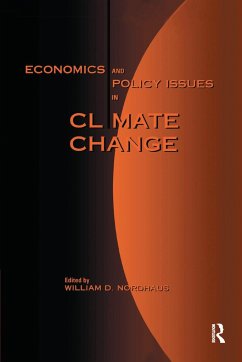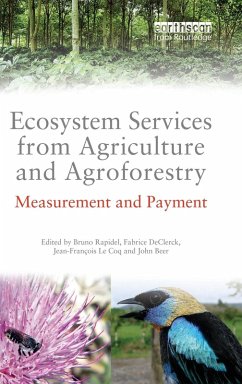
Economics and Policy Issues in Climate Change
Versandkostenfrei!
Versandfertig in 1-2 Wochen
159,99 €
inkl. MwSt.
Weitere Ausgaben:

PAYBACK Punkte
80 °P sammeln!
In this volume, eminent analysts assess the IPCC Working Group report published in 1995 and address the questions that emerge from it. The result is an instructive and cogent look at the realities of climate change and some methods (and difficulties) of dealing with them. First Published in 1998. Routledge is an imprint of Taylor & Francis, an informa company.













